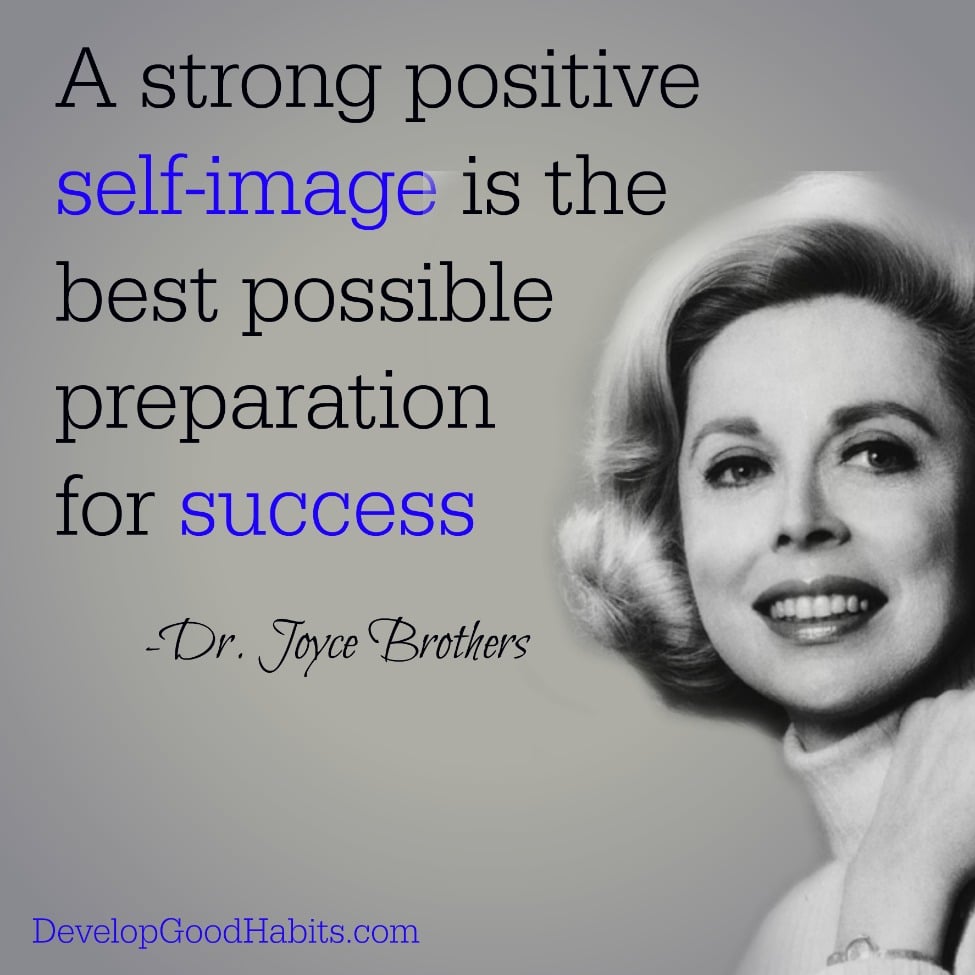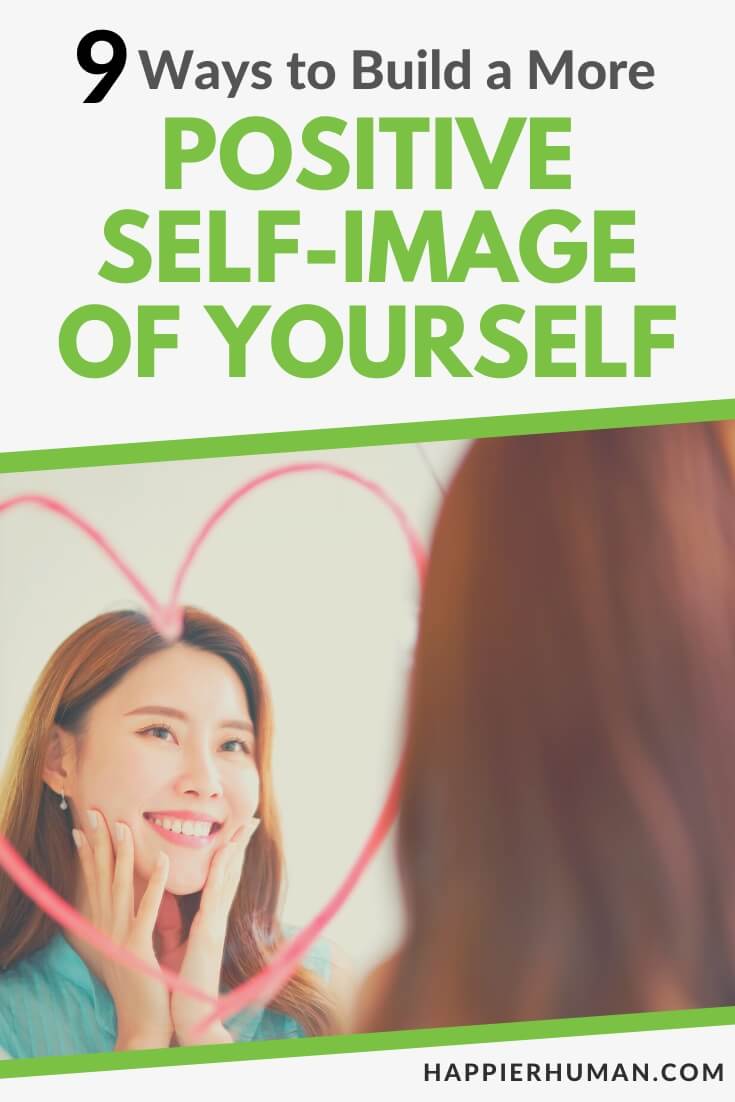There might be affiliate links on this page, which means we get a small commission of anything you buy. As an Amazon Associate we earn from qualifying purchases. Please do your own research before making any online purchase.
My friend Lisa has been through a string of bad relationships. She always seems to pick the rotten apple in the bushel, and she can’t seem to make better decisions. It’s like she doesn’t believe she deserves better. Lisa hasn’t developed a positive self-image.
Without a positive self image, we can’t see our own worth. The opposite of a healthy self-image is to have a stunted and negative view of who and what you are.
Are you like Lisa, constantly setting yourself up for failure because you don’t see yourself succeeding or being worthy of joy and happiness?
It’s time to switch out that negative light you’ve been seeing yourself in and light up some positive self-imagery as you embrace who you are and see the potential in each of your actions and deeds.
You may not be perfect, but you are perfectly you.
How about building a more positive image of yourself and opening the world of possibilities you’ve been denying yourself? This guide shows you how.
What Is a Positive Self-Image?
Starting with the basics, a self-image is a mental image, idea, or concept you have of yourself. It’s how you view yourself based on self-impressions.
Your self-image can be positive, negative, or something in between. When you have a positive self-image, you see yourself in a positive light and use positive words when describing yourself.
A negative self-image is often tied to having poor self-confidence and low self-esteem, and it can lead to depression and other mental health issues.
Examples of a negative self-image are:
Examples of a positive self-view are:
In essence, your personal view of yourself is based on three aspects:
- What you think of yourself.
- How you interpret others’ perceptions of you.
- How you would ideally like to be (your ideal self).
And within these aspects, your self-image is categorized into at least six dimensions:
- Physical – how you evaluate your physical appearance
- Intellectual – what you think of your intelligence
- Psychological – how you evaluate your personality
- Sexual – how you think you fit into society’s boxes of sexuality
- Moral – what you think of your principles, values, and morals
- Skills – how you perceive your technical and social skills
So, what do you see when you look at yourself in the mirror – the actual mirror hanging in your bathroom or bedroom and the one you have in your mind?
What words do you use to describe yourself? Do you see yourself in a positive or healthy light, or do you see yourself negatively and flawed? Or is it a combination?
The words you use to describe yourself are your personal internal dialog, and these words become a collective representation of who you are. Essentially, the words you use can be grouped into your strengths and your weaknesses.
Luckily, your concept of self isn’t fixed. It flows on a continuum (a sliding scale), where a positive image is on one end and a negative image is on the other.
It’s rare that someone’s personal view of themselves is positioned on one extreme; for most of us, our self-image moves around based on how we feel in that moment, our experiences, and the people around us.
If you have a poor self-image, there are steps you can take to improve how you see yourself. It’s an ongoing process, much like starting a new habit – where you continuously learn, reevaluate, and reinforce healthy behavior. Luckily, working on your self-view is worth it as it can significantly improve your life quality.
Why Is a Positive Self-Image Important?
A healthy self-image is one in which you are aware of your good and bad characteristics in a realistic and objective way. You accept who you are and your power to develop and become who you are meant to be (or strive to be).
Thus, it’s essential to develop a positive self-image because:
9 Ways to Improve Your Positive Self-Image
It’s natural for us to focus more on “what’s wrong with ourselves” than what we have going for us.
Just like people jump onto social media and review sites to badmouth a company, product, or service (often justifiably because of poor service), we are quick to jump on the negative bandwagon. We only see what we did wrong, how “bad” we are, and how we don’t measure up to some idealistic version of who we (or others in our lives) think we ought to be.
It’s time for negative rumination to take a back seat. It’s time to improve your self-image so you see who you are – in a healthy way. Here’s now:
1. Work on Self-Development
When you prioritize self-development and personal growth, you consciously work on improving yourself. You work to better who you are by learning new skills, stopping bad habits, and learning new, healthy ones.
When you see yourself grow, you’ll feel optimistic about yourself and life, and you’ll want to push yourself to do and be better.
As you become (more) self-aware, you have a clearer vision of who you are, and while there are aspects of yourself you may not like, you’ll be able to enhance your strengths and overcome your weaknesses.
You’ll feel like you have a sense of purpose and you’ll learn to love yourself, which contributes to a healthy mental blueprint of who you see yourself to be.
How to Work on Self-Development and Growth:
2. Surround Yourself With Safe People
People aren’t good or bad; they are safe or unsafe for you. Building a social circle with good people – people who are safe for you – helps you develop a good self-image.
Your “tribe” will support you, encourage you, compliment you, push you, and be there for you – no matter what.

They’ll appreciate and love you for who you are, and being surrounded by safe people makes you feel good about yourself.
You’ll be energized and motivated to go after what you want, which makes you see yourself in a positive way.
How to Find Your Tribe:
3. Be Honest With Yourself
It’s only when you undertake a self-analysis to learn about yourself that you can learn to accept who you are. It’s important to see the good of who you are as well as the “bad.”
And technically, what you lack, what you don’t excel at, and where you don’t succeed aren’t bad or negative things about you.

It just is, and you have the power to change your weaknesses into strengths. Identify your weaknesses, take an objective look at them, and see how you can work to improve them while building on your strengths.
How to Be Honest With Yourself:
4. Stop Criticizing Yourself
It’s it nice to beat yourself up for every little mistake you’ve ever made? (It’s not, but it’s so easy to fall into the self-criticizing hole and “comfortably” stay there.) Hyper-focusing on everything you can’t do right isn’t helping you or anybody else.
It’s time to accept that you are human and not perfect. You’ll make mistakes; it’s part of life. But instead of seeing mistakes as failures and the end of the world, realize they are opportunities and lessons.
How to Stop Self-Critique:
5. Practice Gratitude Every Day
When you practice gratitude every day, your mindset shifts from “not enough” (a scarcity mindset) to “plenty” (an abundance mindset). You stop thinking about how you aren’t worthy and enough and what you lack and start thinking of what you do have in your life.
As you note what you are thankful for, you’ll realize the positive role you play in your life and that of others, and this contributes to a healthy self-image.
How to Practice Gratitude:
6. Celebrate Your Wins (No Matter How “Small”)
When something doesn’t go how we thought it would, we tend to focus on the negative and how we couldn’t make it. But when we do something right, we rarely give it a second thought.
It’s essential to celebrate every win – every small step of progress and every big step of growth. As you actively acknowledge what you do right and well, your mindset changes to what you can do from what you couldn’t. This helps create a positive view of yourself.
Plus, as we celebrate our victories, we are motivated to keep going, which builds our self-esteem, self-confidence, and self-view all the more.
How to Celebrate Your Wins:
And here's a great video about on why you should celebrate your wins, no matter how small they are:
7. Cut Back on Social Media and Stop Comparing Yourself to Others
Social media can add value to your life, but it also has the power to ruin it.
People love posting photos and comments about their lives, portraying themselves in the best light possible (no matter how far from the truth the post actually is).
It’s challenging to scroll through your social feeds and not admire all these so-called perfect people while reflecting on all your negative qualities.

All the how you don’ts, how you aren’ts, and how you can’ts run through your mind like a hamster running on a spinning wheel.
To improve your self-image, take a social media break and stop comparing yourself to others. Just focus on you and your life, and remember that what people share (on social media or in real life) is just part of the story, and often, it’s a glamorized version.
How to Reduce and Eliminate Social Media and Stop Comparing:
8. Do What Makes You Feel Good About Yourself
To help improve your self-image, set aside time to engage in activities you like. Making time for things you enjoy helps you feel more relaxed and happy, and this in turn boosts your confidence and your self-view.
You also want to ensure you don’t forget the basics: Eating healthily, getting enough Zzzs, and moving around have a positive impact on your mental and physical well-being.
How to Engage in Positive Self-Image Activities:
9. Watch Your Self-Talk
How you talk to yourself has the power to influence how you see yourself. Your mind and your body are connected: Your self-image has the power to positively or negatively affect your well-being, while your well-being can also influence how you view yourself.
You can’t be conscious of how you talk to yourself every second of every day, you can be mindful of what you think of yourself. You should be particularly mindful when you experience a downward spiral of negative thoughts.
How to Watch Your Self-Talk:
Final Thoughts on Building a Positive Self Image
A positive self-image is essential for a happy and healthy life. Remember that your mental blueprint of you will shift between positive and negative depending on where you are in your life, how you feel, and what’s happening, and that’s perfectly normal.
It’s continuous but achievable work to maintain a healthy self-view.
Want to learn more about how to boost your self-image? Why don’t you empower yourself? Taking control of your life, having certainty, and eliminating self-doubt are sure-fire ways to see yourself more positively.
And if you're looking for more articles about self awareness, check out these blog posts:
- 13 Self-Awareness Examples You See Throughout Life
- 12 Self-Awareness Activities for Kids & Young Students
- 57 Self-Awareness Quotes to Know Yourself Better


